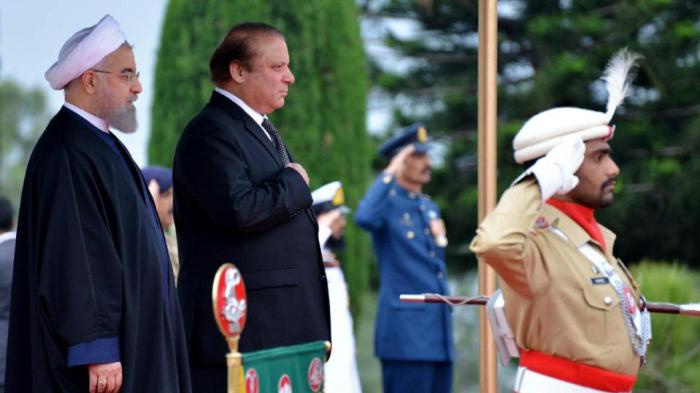Iran and the Aftermath of Nuclear Deal

(Iran's President Hassan Rouhani in his March 25 visit to Pakistan. Photo: AP)
y: Nosratollah Taik
There is no doubt that the determination and adept foreign policies of the Iranian government during the past two years led to the JCPOA achievement. However, a notable question remains to be answered: is the nuclear agreement a capacity to muster national resolution for a new beginning in internal and foreign relations? Or a capacity-builder to pursue the policies of the past more rigorously?
Unfortunately, there is no space for critical, non-partisan analysis of the situation in Iran's current political climate. The opposition has poisoned the atmosphere with their nitpicking and unfair criticisms so much that one cannot offer a critical analysis. Despite all these problems, an evaluation of the administration’s achievements and mistakes seems inevitable. Applying traditional diplomacy, Rouhani's administration achieved JCPOA with minimal costs. However, the administration and its foreign policy apparatus made a simple-minded reduction of international developments to Iran-West ties. Their second mistake was the presumed detachment of foreign and domestic policies, which not only caused non-achievement on JCPOA intended goals, but also makes their realization further difficult. The JCPOA was the product of Iran's determination to solve the nuclear issue, but one cannot overlook the cooperative attitude of transregional powers in its achievement.
The failure to observe the complexities of the international scene as well as capability of the regional and transregional powers to organize and influence other actors also increased Iran’s regional problems. As Iran got closer to clinching the nuclear deal, regional tensions became worse. A flawed analysis of the JCPOA's domestic ramifications, misguided presumptions in detaching foreign and domestic policies, and the failure to attend to the Middle East, complex nonlinear developments have created problems for Iran’s foreign policy.
The coincidence between Iran’s new approach to the nuclear dossier and the popular uprising in the Middle East and North Africa, the so-called Arab Spring, was neglected by Iran's foreign policy apparatus. The pro-democracy movement had boosted Iran's influence in the region and struck Saudi Arabia with fear, pushing the new Saudi leaders towards reckless policies. However, Iran not only failed to aptly understand or treat the situation but also tried to impose the label 'Islamic Awakening' on the popular uprisings, amplifying fears by targeting not only policies and governance but also religious politics of the Saudi leaders.
Back to our main question, what is the JCPOA after all? Clearly, it could pave the ground for the emergence of our potentials, but can't resolve our problems autonomously. The nuclear agreement is a mixed blessing: it is up to us to turn its potential threats into opportunities. Despite its unfavorable prelude, the Tenth parliamentary election and high public turnout at ballot boxes helped return balance to the domestic scene in Iran. The recent state of affairs can put Iran’s foreign policy on a launch pad in the year to come. Although the country’s economy officials are expecting a five-percent growth, the crisis-hit region, unfavorable business atmosphere, high corruption rates and the web of bureaucracy does not allow too much optimism. But it is never too late to mend.
* Nosratollah Tajik is Iran's ambassador to Jordan during the presidency of Mohammad Khatami.

